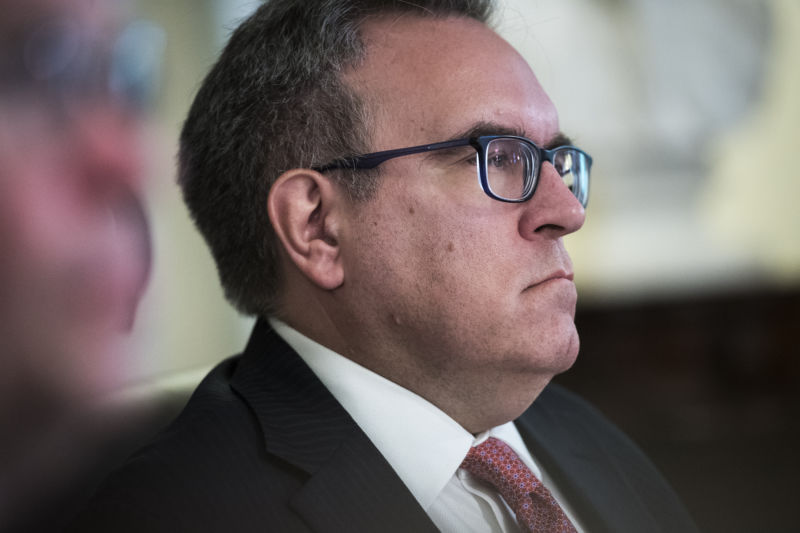EPA at a 30-year low for referring pollution cases for criminal prosecution

Polluters likely had a good year in 2018. According to numbers from advocacy group Public Employees for Environmental Responsibility (PEER), the number of criminal pollution cases that the Environmental Protection Agency (EPA) referred to the Department of Justice for potential prosecution was lower in 2018 than it had been in 30 years.
That’s probably not because industry in America is becoming more environmentally conscious. PEER suggests the reason for the low number of referrals is that the EPA is only employing between 130 and 140 special agents in the agency’s Criminal Investigation Division, less than the minimum 200 agents specified by the US Pollution Prevention Act of 1990.
The EPA only referred 166 cases to the Justice Department in 2018. According to numbers from the Associated Press, referrals peaked in 1998, with 592 cases referred for prosecution. Throughout the George W. Bush presidency, referrals ranged somewhere between 300 and 450. Referrals dipped during the Obama presidency to a range between 200 and just over 400. Referrals have been on a downward trend since 2012.
Convictions on pollution-related grounds were also at a record low. Only 62 polluters were convicted in 2018, the lowest since 1992. Convictions numbers tend to follow referrals numbers.
PEER says these numbers are likely to continue. In the most recent two months, only 24 cases were referred to the Justice Department for criminal prosecution. (However, PEER put out a similar report in 2017 projecting that only 120 cases would be referred in 2018, a prediction that was obviously overly pessimistic.)
In a statement to the Associated Press, the EPA said it was directing “its resources to the most significant and impactful cases.” The Trump administration has repeatedly proposed cuts to the EPA’s budget, but Congress has largely kept EPA funding in place.
While it’s unsurprising that PEER, a group made up of public employees, would advocate for increasing the numbers of special agents employed at the EPA, an investigation initiated by the US Government Accountability Office (GAO) seems to share PEER’s concern.
On Tuesday, The Hill reported that the GAO was also looking into low enforcement numbers at the EPA, specifically concerning abnormally low settlements made with polluters in 2017. In 2017, the EPA only collected $1.6 billion in penalties, down from $5.7 billion the prior year.
PEER has had recent legal success challenging the current administration’s EPA. In 2017, PEER requested information from the EPA through a Freedom of Information Act (FOIA) asking it to provide evidence for former Administrator Scott Pruitt’s comments on national TV that carbon dioxide was not known to be a major contributor to climate change. The EPA never provided that information to PEER, so the group sued the EPA, and in 2018, a judge ordered the EPA to turn over any information it had on Pruitt’s statements or admit that it had none.
In August, the EPA was unable to turn anything of substance up, but the agency said it would continue with an electronic search. In October, the EPA sent PEER a single document of Congressional correspondence in which Pruitt answered questions posed by the US Senate Committee on Environment and Public Works. The EPA was unable to provide any scientific evidence to support former Administrator Pruitt’s statements.
https://arstechnica.com/?p=1441431